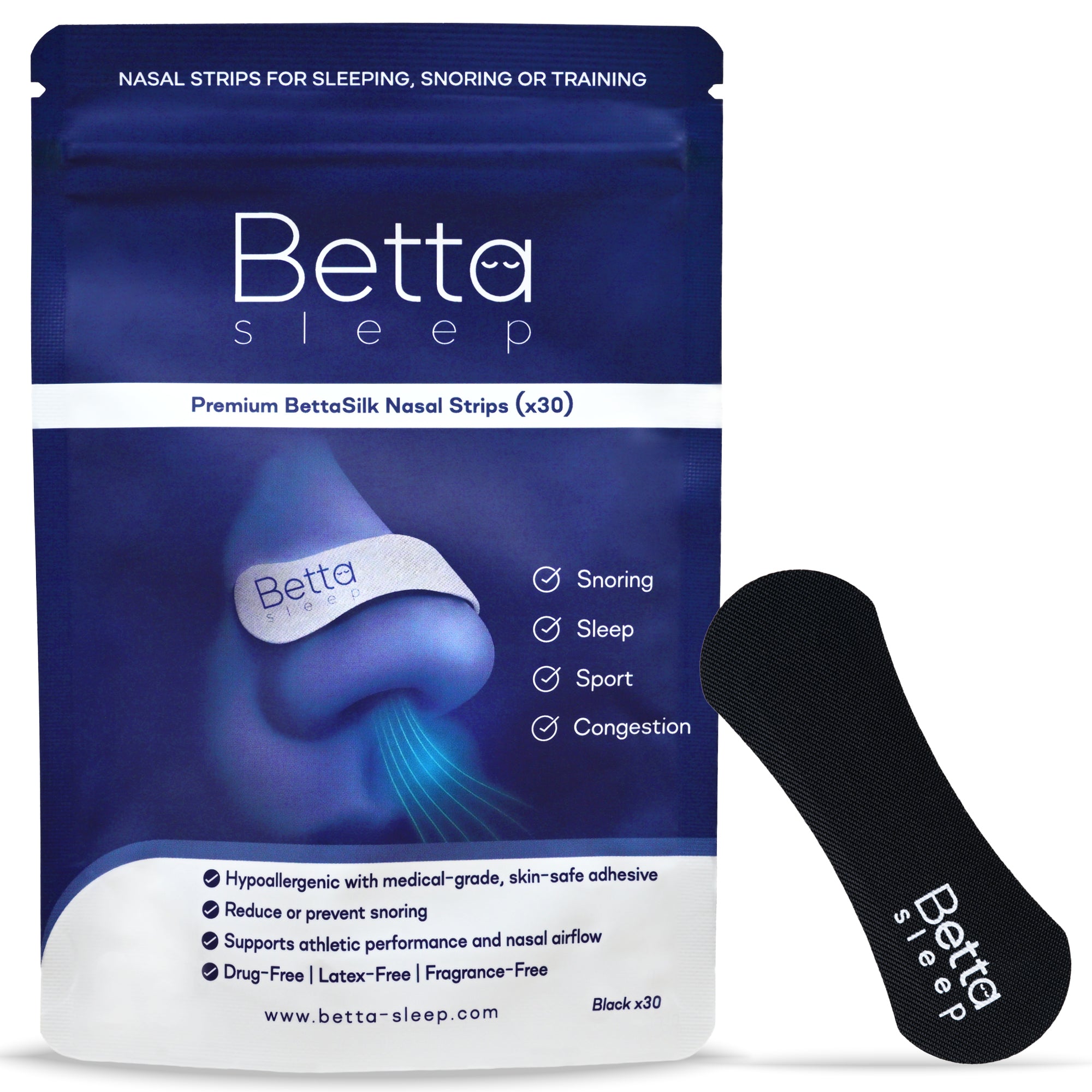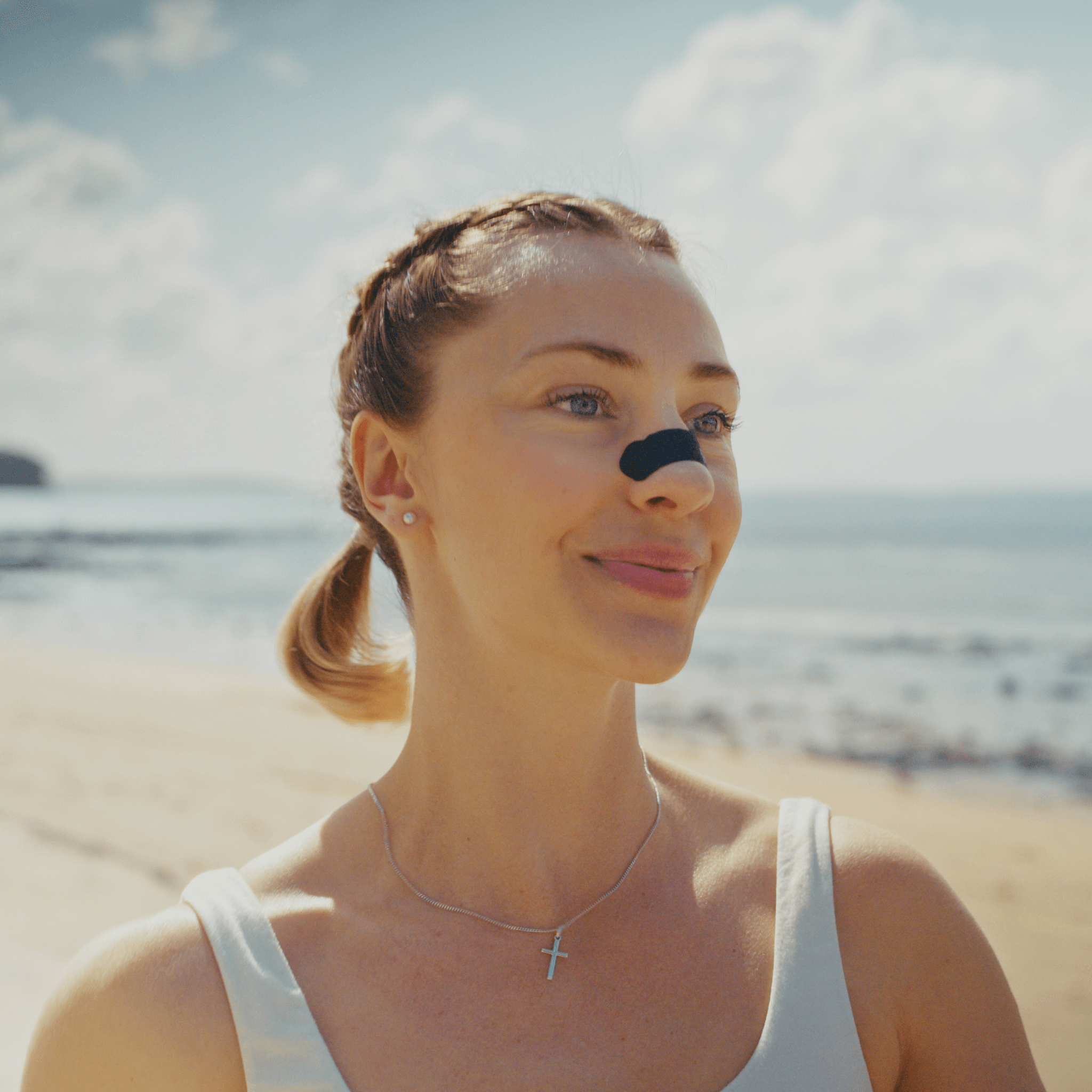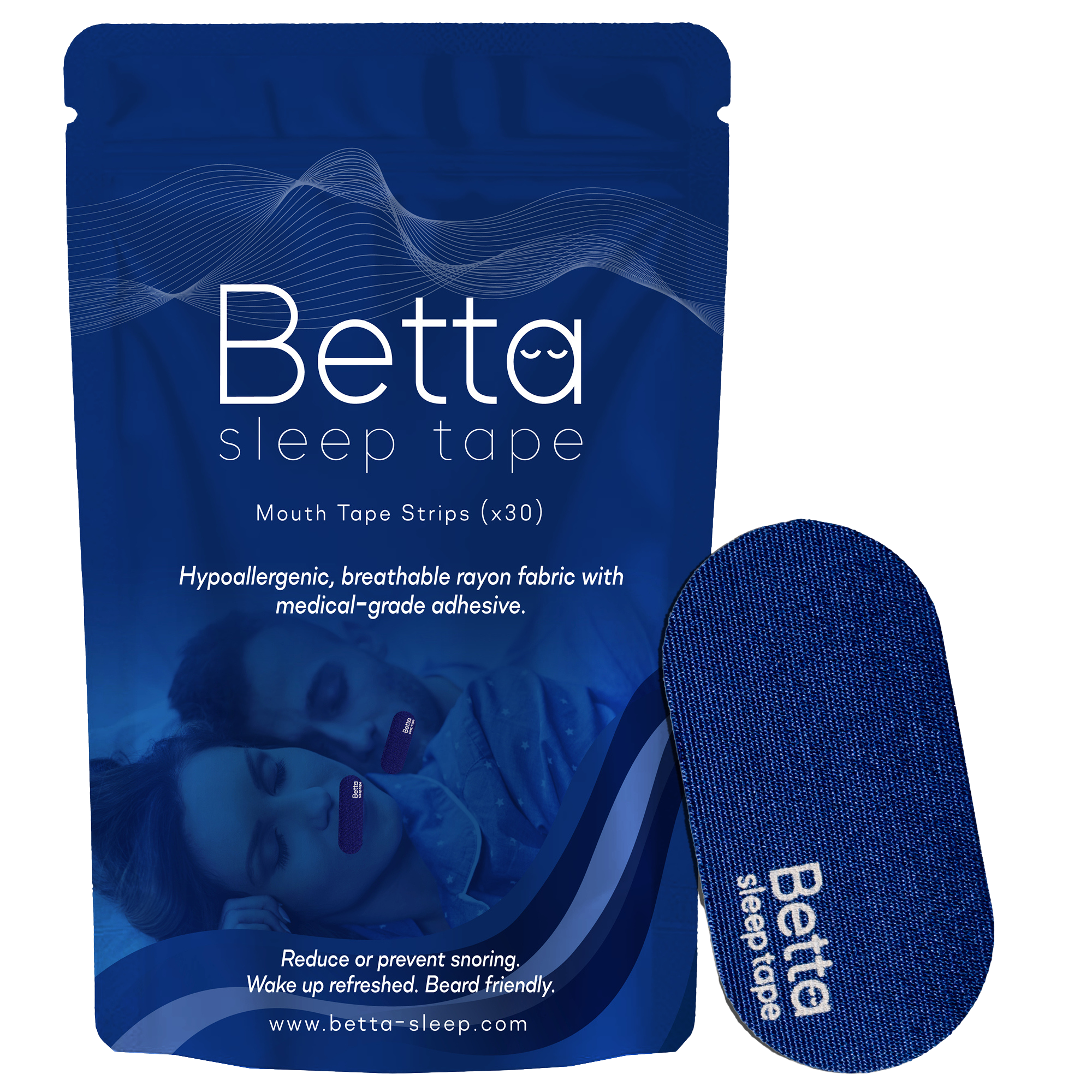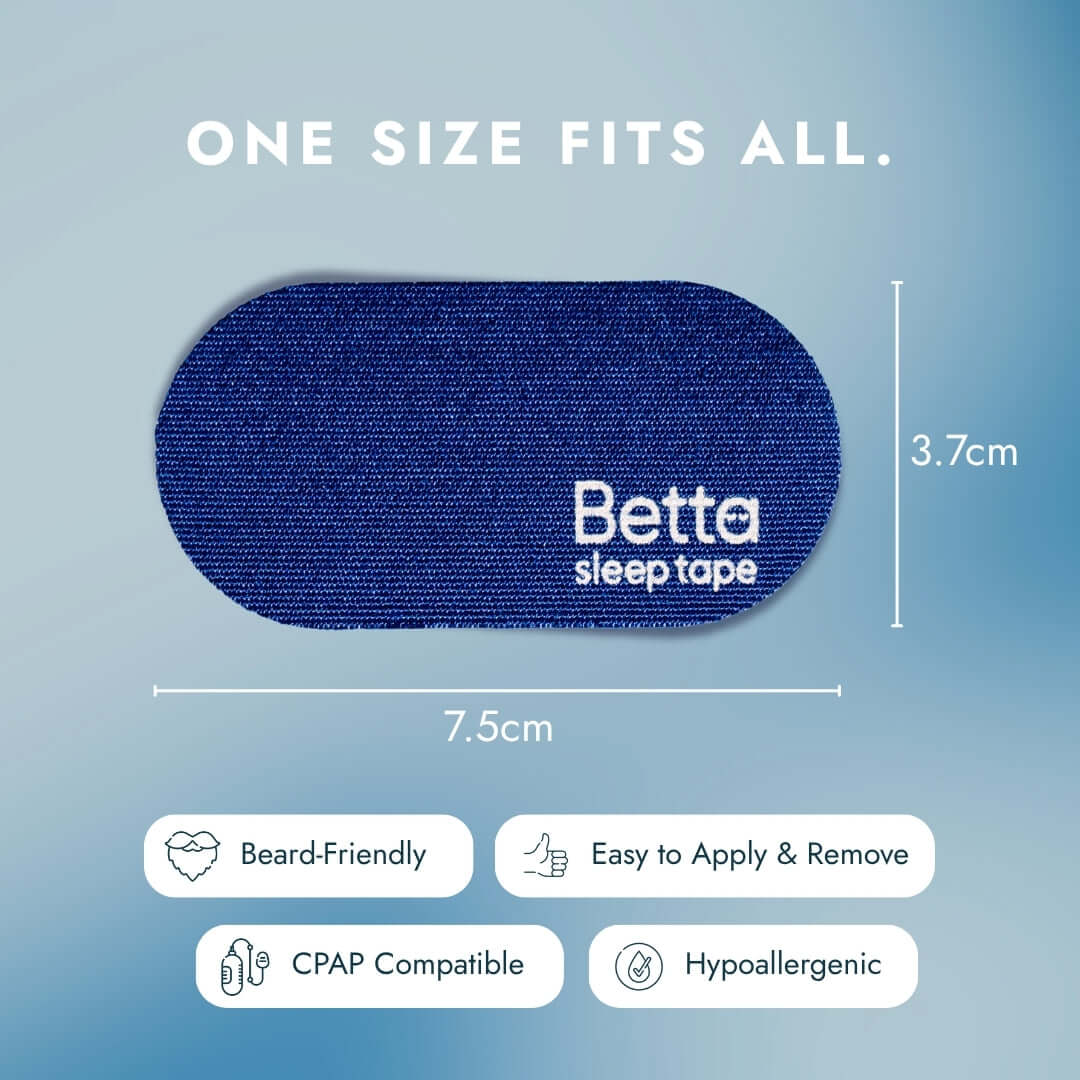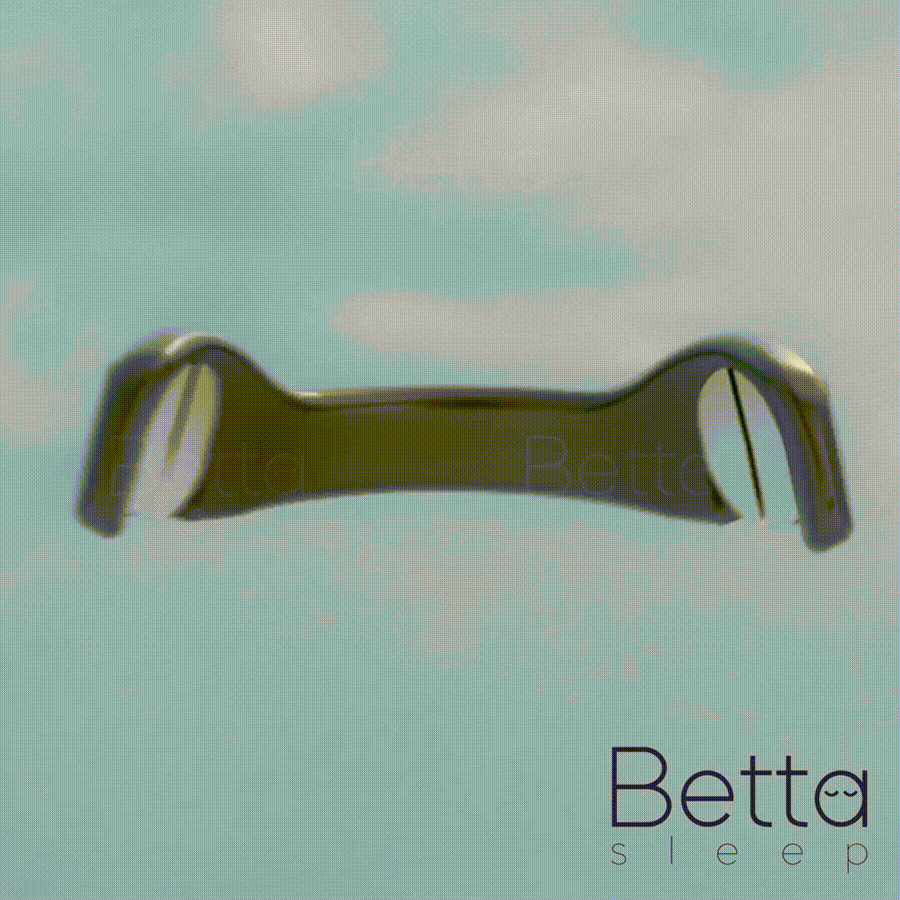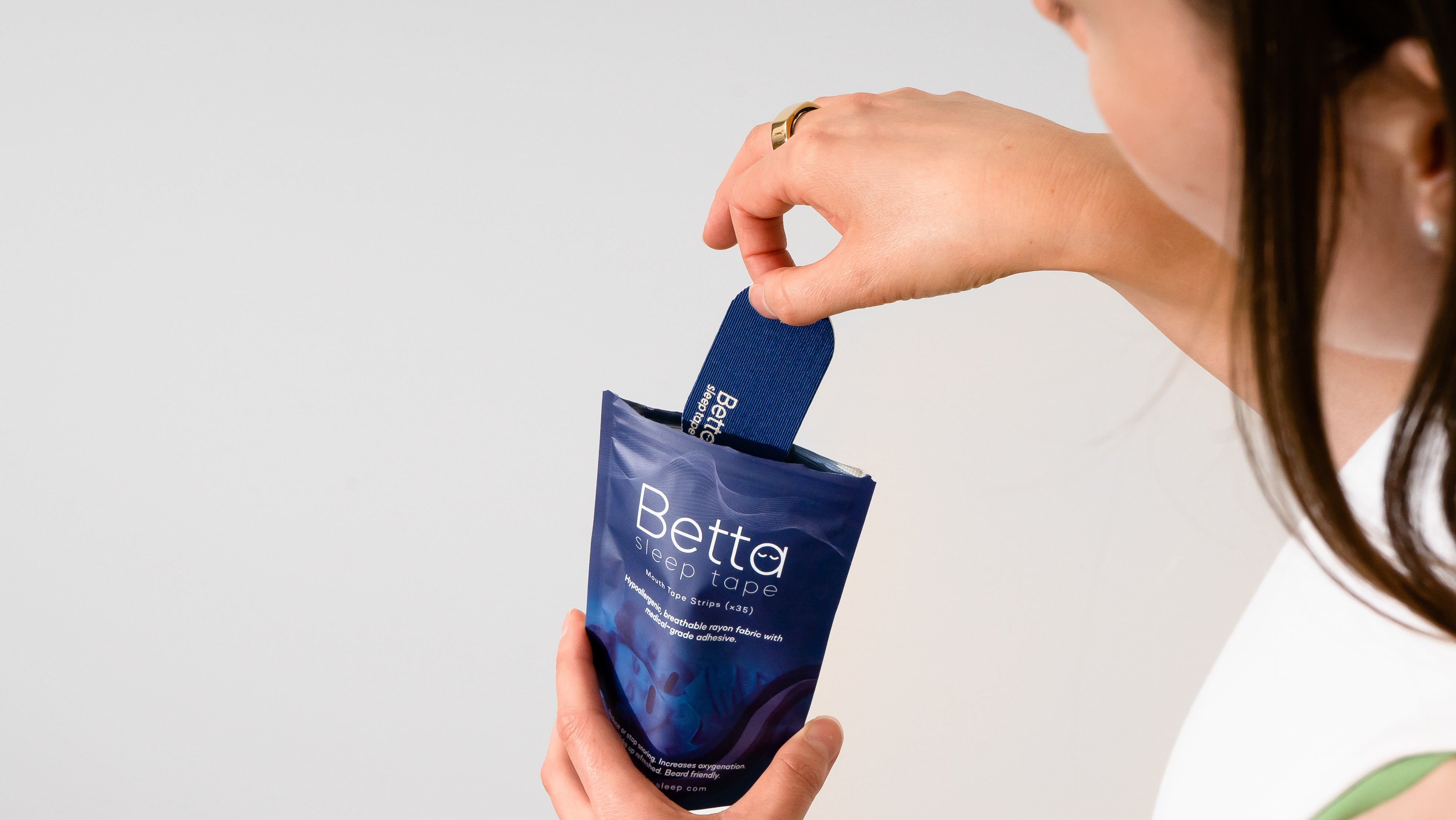Article: Mouth Taping Myths: What’s Fact and What’s Fiction?
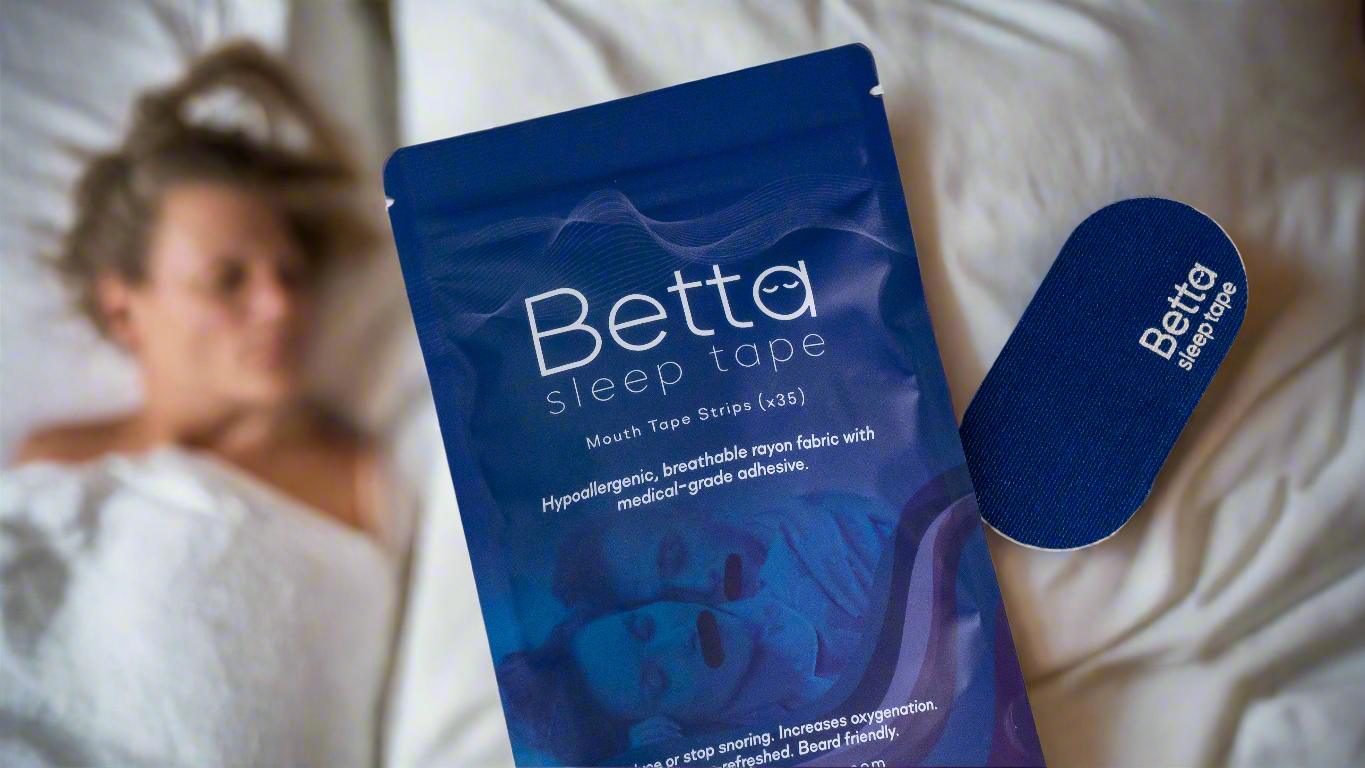
Mouth Taping Myths: What’s Fact and What’s Fiction?
Mouth taping, a practice that aims to encourage natural nasal breathing during sleep, has been met with both curiosity and skepticism. While it has gained recognition for its potential benefits, there are myths and misconceptions that deserve to be addressed.
In this blog, we'll dive into some of the most common myths surrounding mouth-taping and provide evidence-based insights to separate fact from fiction.
Key Takeaways:
Myth |
Debunked |
|
Myth: It's Dangerous and Unnatural |
Medical-grade mouth tape is breathable and safe. |
|
Myth: Taping Your Mouth Will Cause Skin Irritation |
Skin-friendly tape minimizes skin irritation. |
|
Myth: You Can't Breathe Through Your Mouth in Emergencies |
Although holding the mouth shut, our tape is breathable and tapes can be quickly removed for safety. |
|
Myth: Only for Severe Snorers |
Mouth taping benefits a wide range of individuals. |
|
Myth: Mouth Taping Is Uncomfortable for Bearded Individuals |
Our high-quality rayon tape is designed for comfort with facial hair. |
|
Myth: Regular Tape Is a Cheaper Substitute |
Medical-grade tape ensures safety and comfort. Other tapes may irritate and cause damage to facial hair or skin. |
|
Myth: Mouth Taping Doesn't Work for CPAP Users |
Mouth taping complements CPAP therapy for better sleep. |
|
Myth: Mouth Taping Is a Gimmick |
Scientific research supports mouth taping's effectiveness. |
Myth 1: Mouth Taping Is Dangerous and Unnatural
One of the most common myths is that taping the mouth shut during sleep is dangerous and unnatural. People often worry that it might lead to suffocation or poor-quality breathing.
Debunked: In reality, medical-grade mouth tape is designed to be breathable and allows for the exchange of air through the nose. It gently encourages the natural rhythm of nasal breathing while keeping the mouth comfortably closed. Suffocation is not a concern with properly applied mouth tape, and it poses no danger to individuals who use it during sleep. Although slightly quirky, mouth taping is not dangerous and is considered a healthy habit.
Myth 2: Taping Your Mouth Will Cause Skin Irritation
Some individuals are skeptical about using adhesive tape on their lips, fearing skin irritation or discomfort.
Debunked: While skin irritation can occur in some cases, it's crucial to choose high-quality, hypoallergenic, and skin-friendly tape specifically designed for mouth taping. These tapes are gentle on the skin and minimize the risk of irritation. With the right tape, discomfort, and skin-related issues are rarely a concern.
Beware of cheap tapes or TikTok hacks that utilise duct tape or other adhesives not designed for your skin.
Myth 3: You Can't Breathe Through Your Mouth in Emergencies
Some skeptics argue that mouth-taping prevents individuals from breathing through their mouths in emergencies.
Debunked: Most mouth tapes are designed for easy and quick removal if needed. They do not hinder the ability to open the mouth and breathe through it. Safety is a top priority, and individuals can easily and swiftly remove the tape in case of an emergency.
That said, we do not recommend using mouth tape if you have been consuming alcohol, or sedative medication, are obese, or have a respiratory issue. Consult your healthcare professional.
Myth 4: Only for Severe Snorers
Another myth is that mouth taping is only necessary for severe snorers or individuals with sleep apnea.
Debunked: In reality, mouth-taping can benefit a wide range of individuals who want to optimize their breathing during sleep.
- Experiencing low energy through the day?
- Partner tired of your railtrain snoring?
- Wake up with bad breath?
- Want improved immunity & blood pressure?
- Interested in the mewing trend but not mewing?
Whether you're a mild snorer, someone seeking better sleep quality, or aiming to enhance your overall well-being, mouth taping is a valuable practice.
It's not exclusive to those with severe snoring or sleep apnea and can benefit anyone looking to embrace the advantages of nasal breathing during sleep.
Myth 5: Mouth Taping Is Uncomfortable for Bearded Individuals
Blokes with beards or moustaches might be skeptical about mouth taping, fearing discomfort and potential issues with tape adherence. After all, you worked hard to grow that facial fuzz, and its understandable to be concerned over something connected to your appearance.
Debunked: While it's true that facial hair can pose challenges when applying mouth tape, it's essential to choose the right tape. High-quality medical-grade mouth tape is designed to adhere gently to the lips without causing discomfort or pulling on facial hair. With the right tape, individuals with beards can comfortably experience the benefits of mouth taping. Read our how-to application guide for tips on how to apply if you have facial hair.
Duct tape or other household tapes on the other hand? Enjoy your patchy moustache.
Myth 6: Regular Tape Is a Cheaper Substitute
Why invest in specialised mouth tape when regular adhesive tape is cheaper and readily available?
Debunked: Regular tape, such as masking or adhesive tape, is not a suitable substitute for medical-grade mouth tape.
Medical-grade mouth tape is designed to be skin-friendly, hypoallergenic, and breathable. It allows for the exchange of air through the nose while keeping the mouth closed. Using regular tape can lead to discomfort, skin irritation, reduced airflow, or snag facial hair. By investing in high-quality mouth tape, you’re investing in safety, comfort, and better sleep.
Myth 7: Mouth Taping Doesn't Work for CPAP Users
Skepticism: CPAP (Continuous Positive Airway Pressure) users might doubt whether mouth taping can benefit them, as they already use a breathing device.
Debunked: Mouth taping complements CPAP therapy for individuals by providing all of the mouth taping benefits with those of the CPAP device. It helps prevent mouth leaks during CPAP use, ensuring that positive airway pressure is maintained, optimizing the effectiveness of the therapy. Many CPAP users have found that mouth taping enhances their overall sleep quality and adherence to CPAP treatment.
Myth 8: Mouth Taping Is a Gimmick
Skepticism: Mouth taping may be perceived as a trendy gimmick without scientific backing.
Debunked: Contrary to this myth, there is a growing body of scientific research and expert endorsements supporting mouth taping's effectiveness. It is grounded in the principles of promoting natural nasal breathing, optimising oxygenation, and reducing common sleep issues like snoring.
In conclusion, while skepticism and myths may surround mouth taping, evidence-based insights help debunk these misconceptions. The practice is grounded in science, and when done correctly with the right tape, it can offer numerous benefits, including improved sleep quality, enhanced breathing, and reduced snoring. It's essential to approach mouth taping with accurate information and an open mind, as it has the potential to transform your sleep and overall
Ready to sleep Betta?
